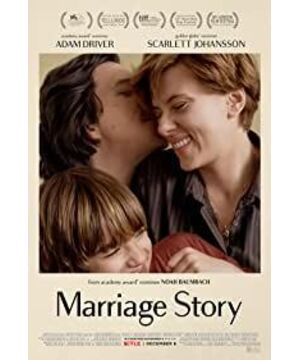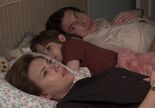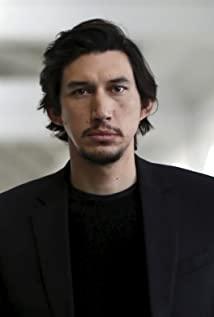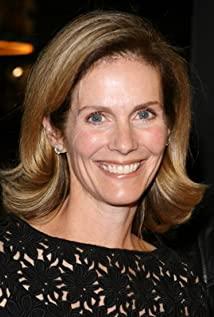Nicole and Charlie, who have been married for several years, are about to divorce. At the beginning, both parties were very gentle and particular, and they clearly left their love for each other, so they both agreed not to find a lawyer and settle it peacefully. But things began to sour after Nicole listened to her family's advice and found Nora, an elite lawyer. Nora is an experienced divorce attorney who just wants to win, and she doesn't care how her client's relationship and life will be affected. So we watched couples who were cautious for fear of hurting each other gradually become tit-for-tat, desperate and even cursing each other, just to fight for custody of their children. The movie climaxed in that long-lasting quarrel. It was them who hoarsely despised each other, it was they who cried bitterly, and it was they who clung to each other helplessly. Isn't this the director's most naked and cruel revelation of marriage? The focus of their conflict in the movie is the child, but I don't think that's the point. The real point is why they divorced. The child is just a starting point for them to argue with each other during the divorce. The setting of the first two monologues is very clever. They clearly remember all the reasons for falling in love with each other, and clearly understand, appreciate and rely on each other very deeply. I didn't know they thought they were still in love. But who can say no? Until Nora appeared, all their actions were cautious and gentle, for fear that their friends would not be able to do it after the divorce. Anyway, I was at a loss, and even thought that they might be arguing about something trivial. It was not until Nicole cried in front of Nora that we woke up, it turned out to be an American version of Siege! Nicole always felt that after marriage, everything revolved around Charlie, that she was ignored by Charlie, and that she lost her value. Originally, this awakening of female self-consciousness is a good thing, but it is not so simple when it comes to a selfish artistic genius like Charlie. Maybe people who enjoy being a director are really more or less controlling. But Charlie was far from useless. He was a good dad and a faithful friend to his wife. Maybe the genius of the movie is here, it doesn't show the true face of life objectively. Isn't that what marriage is like in real life? You have shortcomings, I also have shortcomings, you accommodate me a little, I will change a little for you. Therefore, many people simply refer to marriage as "living together", which is not rough. But compromise and sacrifice must not be without principles and bottom lines, otherwise one day one party wakes up, this crack will be infinitely magnified, and then it will reach this step in the film. In any case, although I watched them love each other and hoped that they would get back together, I was very happy for Nicole to finally move towards the freedom or directorship she longed for. Just like Mishima's "After the Banquet", people cannot sacrifice their love and pursuit for love for any reason, let alone marriage. The edifice of marriage can only be built on two complete selves. As long as one party sacrifices this core, even a little, there is a danger of becoming a vassal of the other party, and this danger will devour the edifice bit by bit like termites. So I say that there is no marriage without the complete self.
View more about Marriage Story reviews











